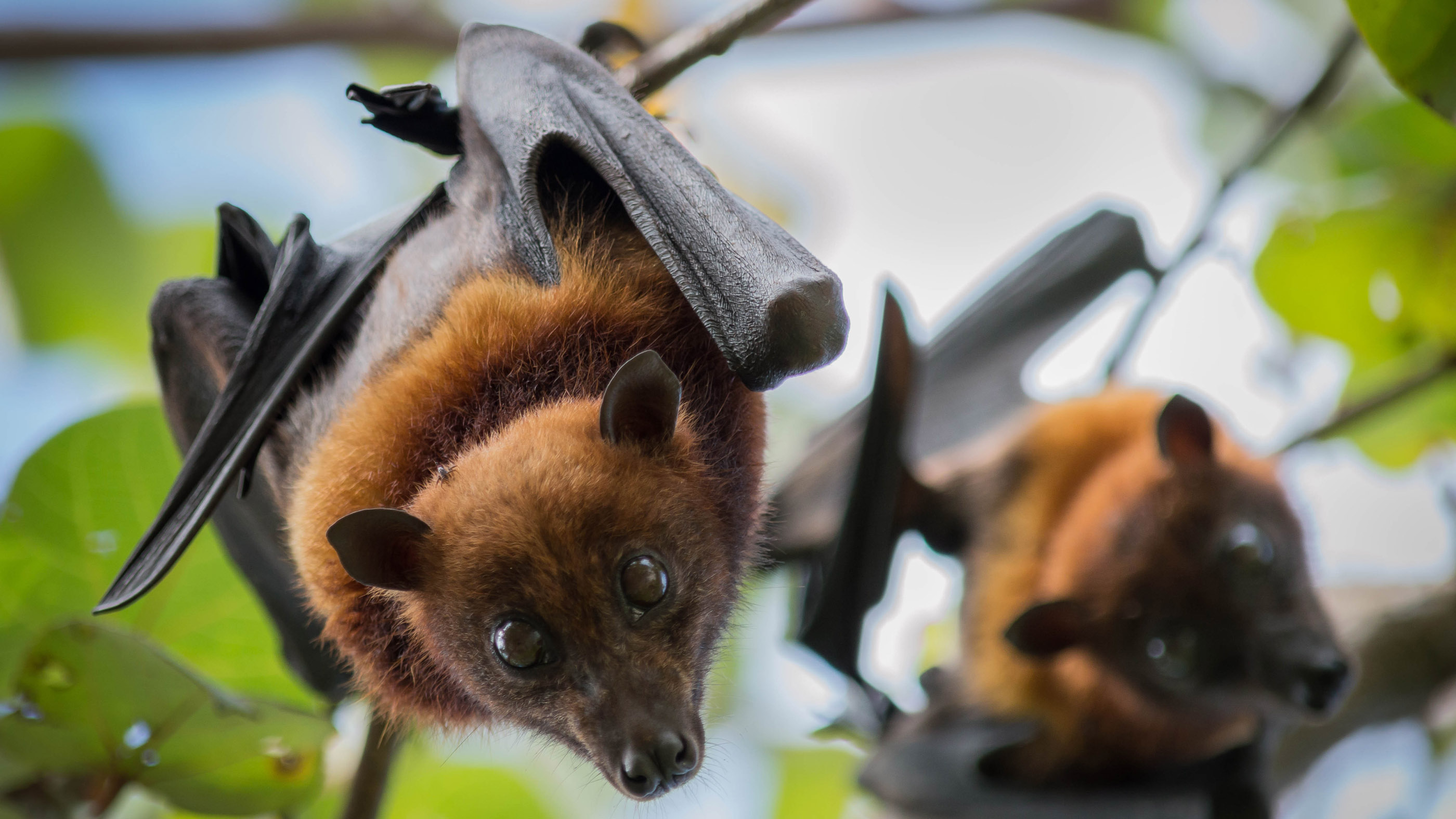The COVID-19 pandemic has introduced us to a new word: Zoonosis (Op-Ed)

Get the world’s most fascinating discoveries delivered straight to your inbox.
You are now subscribed
Your newsletter sign-up was successful
Want to add more newsletters?

Delivered Daily
Daily Newsletter
Sign up for the latest discoveries, groundbreaking research and fascinating breakthroughs that impact you and the wider world direct to your inbox.

Once a week
Life's Little Mysteries
Feed your curiosity with an exclusive mystery every week, solved with science and delivered direct to your inbox before it's seen anywhere else.

Once a week
How It Works
Sign up to our free science & technology newsletter for your weekly fix of fascinating articles, quick quizzes, amazing images, and more

Delivered daily
Space.com Newsletter
Breaking space news, the latest updates on rocket launches, skywatching events and more!

Once a month
Watch This Space
Sign up to our monthly entertainment newsletter to keep up with all our coverage of the latest sci-fi and space movies, tv shows, games and books.

Once a week
Night Sky This Week
Discover this week's must-see night sky events, moon phases, and stunning astrophotos. Sign up for our skywatching newsletter and explore the universe with us!
Join the club
Get full access to premium articles, exclusive features and a growing list of member rewards.
The recent eruption of COVID-19 near a "wet market" in Wuhan, China — where vendors brought a variety of live wild animals together for purchase, slaughter and consumption — calls our attention to a phenomenon captured by a word increasingly understood by the general public: zoonosis.
Zoonoses are infectious diseases — caused by bacteria, viruses, fungi or parasites — that spread from animals to humans. They can be transmitted through direct physical contact, via air or water, or through an intermediate host like an insect. Often these zoonotic pathogens do not affect the animals in which they reside, but they can represent an enormous risk to humans who have no natural immunity to them.
The COVID-19 pandemic provides a stark reminder that handling or coming into close contact with wildlife — along with their body parts and/or excretions like blood, spit and urine (the potent mix of which lends wet markets their name) — poses a risk of spillover of the pathogens they host and maintain in nature, and that can lead to zoonotic infections.
Related: 13 Coronavirus myths busted by science
Globally, zoonoses are responsible for an estimated 1 billion cases of human illness and millions of human deaths every year. Around 60% of the emerging diseases reported globally are considered to be zoonoses, and 75% of new human pathogens detected in the last 30 years originated in animals.
Zoonotic diseases may be endemic, meaning that they are found in a narrowly defined region or population, or they may be epidemic, when their spread is more far-reaching. A pandemic is a worldwide epidemic. COVID-19 has been designated a pandemic by the World Health Organization (WHO).
A wide variety of animal species can carry zoonotic agents, from domestic animals to wild ones. Examples of domestic animal zoonoses include the bacterial diseases E.coli and toxoplasmosis. Other zoonotic diseases that spill over from wild animal hosts to human populations include West Nile Virus, SARS (severe acute respiratory syndrome), MERS (Middle East respiratory syndrome) and, now, COVID-19.
Get the world’s most fascinating discoveries delivered straight to your inbox.
Related: 20 of the worst epidemics and pandemics in history
These "spillover" events are a significant and growing threat to global health, global economies and global security. Analyses of their trends suggest that their frequency and economic impact are on the rise.
Current investigations of potential zoonotic viruses, funded by the U.S. Agency for International Development's (USAID) PREDICT program, suggest that there are over 1.6 million unknown viruses in birds and mammals. Based on decades of expertise, an estimated 700,000 of these agents could pose a zoonotic risk, according to the Wildlife Conservation Society.
Emergence of these as-yet-unidentified threats results from the ever-shrinking separation between humans and wild ecosystems and organisms. Changes in human population size and distribution, land use, infrastructure and consumption all impact the wild world, shake out the pathogens lurking in the dark and increase the potential of zoonotic illnesses to emerge.
Faced with the spectrum of zoonotic agents currently at large in the natural world, limiting the chances of contact between humans and wild animals is the most effective way to reduce the risk of emergence of new zoonotic diseases.
This must include closing live animal markets that sell wildlife, strengthening efforts to combat trafficking of wild animals within countries and across borders, and working to change dangerous wildlife consumption behaviors. Saving wildlife and wild places, while respecting animals and their spaces, can reduce the transmission of zoonoses as the public begins to absorb this new word into their vocabulary.
Coronavirus science and news
- Coronavirus: Live updates
- What are coronavirus symptoms?
- How deadly is the new coronavirus?
- How long does coronavirus last on surfaces?
- Is there a cure for COVID-19?
- How does coronavirus compare with seasonal flu?
- How does the coronavirus spread?
- Can people spread the coronavirus after they recover?
Christian Walzer is Executive Director, Health, in the Global Conservation Program of the WCS (Wildlife Conservation Society). Walzer contributed this article to Live Science's Expert Voices: Op-Ed & Insights.
Originally published on Live Science.
The one-month trial gives you access to all of the educational site's 9,000 activities in reading, science, math and art. Keep your child busy and learning while we are all stuck indoors.
Christian Walzer is the Executive Director of the Wildlife Conservation Society. He earned a degree in veterinary medicine from the University of Veterinary Medicine, Vienna, Austria and is the cofounder of the Conservation Support Network. He has worked as a consultant in environmental issues for diverse governmental and non-governmental organizations such as the World Wildlife Fund, United Nations Development Programme, Panthera, World Bank and others.
 Live Science Plus
Live Science Plus











